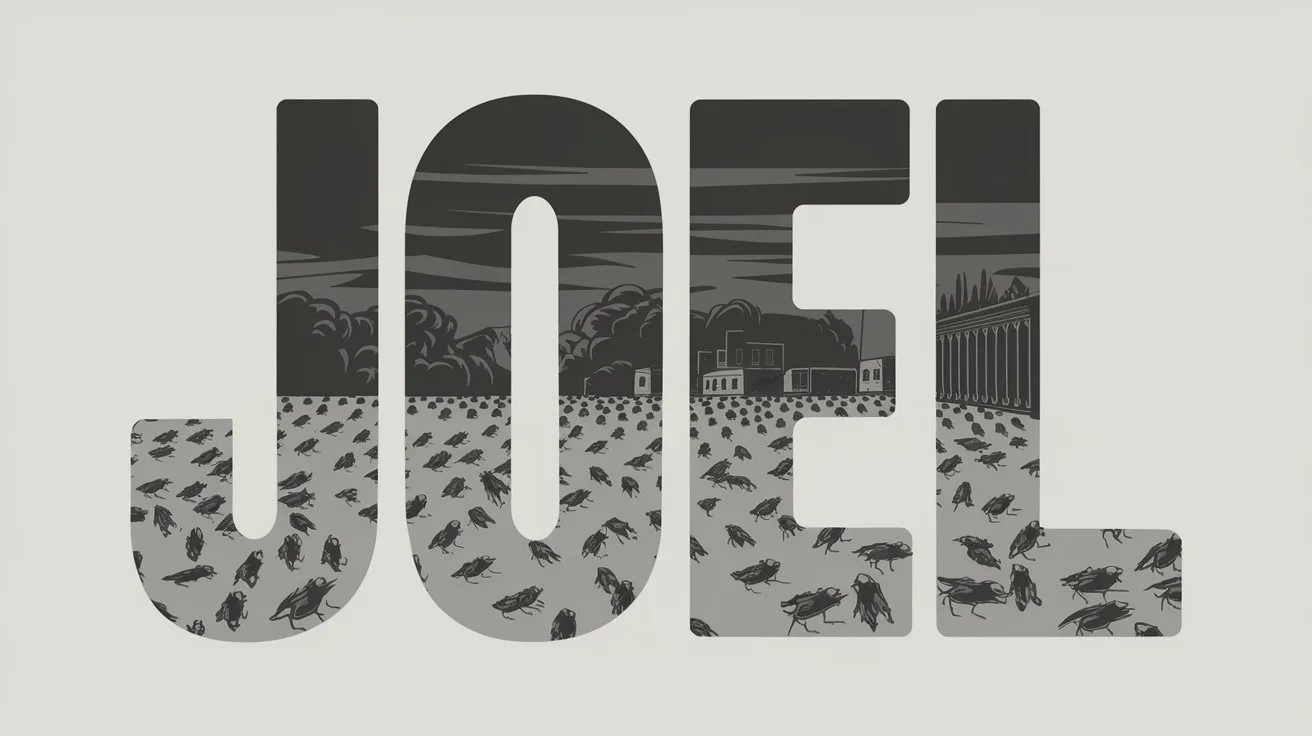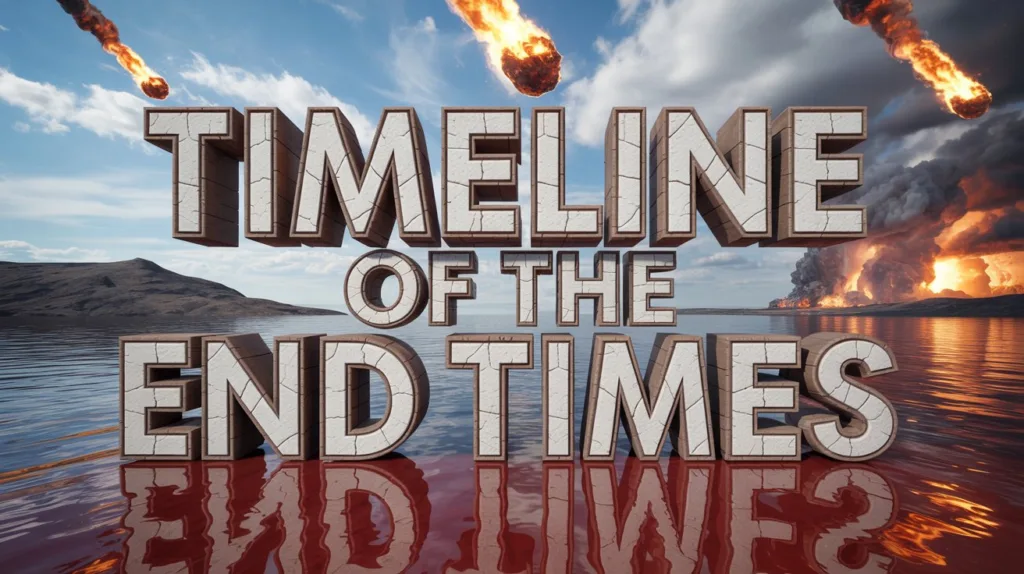The book of Joel is a powerful prophetic message calling God’s people to repentance in the face of judgment, while also offering a glorious promise of restoration and the outpouring of the Holy Spirit. Though it is a short book with only three chapters, its themes are timeless, dealing with God’s judgment, the urgency of repentance, and the hope of future redemption.
Joel’s message is one that echoes throughout Scripture: sin brings judgment, but God’s mercy is available to those who turn to Him with their whole heart. It is a book that warns of the Day of the Lord, but also reveals the heart of God, who longs to redeem and restore His people.
Who Was Joel?
Joel, whose name means “The Lord is God”, was a prophet to the kingdom of Judah. Unlike other prophets, Joel does not mention specific kings or historical events that allow us to precisely date his ministry. However, most scholars place him somewhere around 835–800 B.C., during the reign of King Joash.
His prophecy was directed to the people of Judah, warning them of an impending locust plague and using it as a symbol of a greater judgment to come. But Joel’s message does not end with destruction; he speaks of God’s desire for repentance and the promise of future blessing.
The Ultimate Purpose of the Book
The book of Joel is centered on two major themes:
The Judgment of God (The Day of the Lord): Sin brings devastation, and only repentance can turn away God’s wrath.
The Promise of Restoration
: God will pour out His Spirit on His people, and ultimate victory belongs to the Lord.
Joel’s message unfolds in three powerful movements:
The Locust Plague and the Call to Repentance (Joel 1-2:17)
The Day of the Lord and God’s Restoration (Joel 2:18-27)
The Outpouring of the Holy Spirit and the Final Judgment (Joel 2:28-3:21)
The Locust Plague and the Call to Repentance (Joel 1-2:17)
Joel begins with a devastating picture: a locust plague that has completely ravaged the land. This is not just a bad season of crops; this is a total disaster, bringing famine, economic ruin, and suffering. Joel describes it in graphic detail:
“What the chewing locust left, the swarming locust has eaten;
What the swarming locust left, the crawling locust has eaten;
And what the crawling locust left, the consuming locust has eaten.” (Joel 1:4)
The destruction is so severe that even the priests have no grain or wine to offer in the Temple (Joel 1:9). The joy of the people is gone (Joel 1:12), and their land, which was once blessed, is now cursed.
But this plague is not just a natural disaster; it is a warning from God. It symbolizes something greater: the coming Day of the Lord, a time of divine judgment.
Joel calls the people to wake up and see what is happening. He urges the elders, the priests, and all the people to gather in the house of the Lord and cry out to Him:
“Consecrate a fast, call a sacred assembly;
Gather the elders and all the inhabitants of the land
Into the house of the Lord your God,
And cry out to the Lord.” (Joel 1:14)
This is the first key message of Joel: God’s people must repent before it is too late.
The Day of the Lord Is Near
As chapter 2 begins, Joel’s message intensifies. He describes an army approaching, darkening the sky like the plague of locusts:
“A people come, great and strong,
The like of whom has never been;
Nor will there ever be any such after them,
Even for many successive generations.” (Joel 2:2)
This is not just an army of men; it is the army of the Lord, bringing judgment upon the land. The Day of the Lord is not only about the locusts—it points to a future time when God will judge the nations.
Joel cries out:
“Now, therefore,” says the Lord,
“Turn to Me with all your heart,
With fasting, with weeping, and with mourning.
So rend your heart, and not your garments;
Return to the Lord your God,
For He is gracious and merciful,
Slow to anger, and of great kindness;
And He relents from doing harm.” (Joel 2:12-13)
This is God’s heart; though judgment is coming, He desires repentance. He is not looking for outward religious acts, but for a broken and contrite heart.
The Day of the Lord and God’s Restoration (Joel 2:18-27)
When the people repent, everything changes. God pities His people and promises to restore what was lost:
“So I will restore to you the years that the swarming locust has eaten,
The crawling locust,
The consuming locust,
And the chewing locust,
My great army which I sent among you.” (Joel 2:25)
God’s restoration is complete; not only will their land be restored, but their relationship with Him will be renewed.
“Then you shall know that I am in the midst of Israel:
I am the Lord your God
And there is no other.
My people shall never be put to shame.” (Joel 2:27)
This is the second major message of Joel: Repentance leads to restoration. God does not desire to destroy His people; He desires to bless them.
The Outpouring of the Holy Spirit and the Final Judgment (Joel 2:28-3:21)
Joel’s prophecy now shifts to a future promise. Not only will God restore Israel, but He will pour out His Spirit on all people.
“And it shall come to pass afterward
That I will pour out My Spirit on all flesh;
Your sons and your daughters shall prophesy,
Your old men shall dream dreams,
Your young men shall see visions.” (Joel 2:28)
This prophecy was fulfilled at Pentecost, when the Holy Spirit was given to the Church (Acts 2:16-21). It is a clear picture that God’s salvation is for all who call upon Him.
Joel then shifts again to the final judgment. In Joel 3, God declares that He will judge all nations who have oppressed His people. The Valley of Jehoshaphat (meaning “The Lord Judges”) is where God will gather the nations for war.
“Multitudes, multitudes in the valley of decision!
For the day of the Lord is near in the valley of decision.” (Joel 3:14)
But for God’s people, there is hope. He declares:
“The Lord will be a shelter for His people,
And the strength of the children of Israel.” (Joel 3:16)
The final message of Joel is clear: Judgment is coming, but those who belong to the Lord will be safe.
My Final Thoughts
Joel’s message is both a warning and a promise. The Day of the Lord is coming, and only those who repent and turn to God will be saved. But for those who do, God will restore, redeem, and pour out His Spirit upon them.
This book reminds us that God is holy and just, but also merciful and loving. Even in the midst of judgment, He offers redemption to all who call upon His name.
“And it shall come to pass that whoever calls on the name of the Lord shall be saved.” (Joel 2:32)





 Get the book that teaches you how to evangelize and disarm doctrines from every single major cult group today.
Get the book that teaches you how to evangelize and disarm doctrines from every single major cult group today.